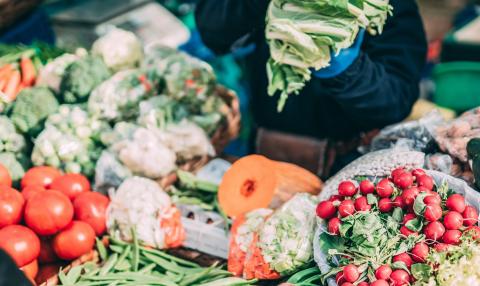Increasing uptake of plant-rich diets
We work to shift diets to be healthier and more sustainable
About this Pillar
Why we want this
Shifting diets to be more plant-rich would bring an array of health, environmental and economic benefits to the UK.
In the UK today, diet-related disease is one of the leading causes of preventable ill health, and it will be impossible to meet the UK’s Net Zero goal without acting to reduce emissions associated with our food system and the way we produce and consume food.
At the same time, climate change is impacting on the food available for us to buy, with more plant-rich diets critical for supporting UK food security and reducing the pressure we are putting on land overseas.
Rewriting the recipe: Investing in a healthier, sustainable food future
Plant-rich diets focus on incorporating a range of different plant foods, such as fruit, vegetables, beans, legumes, nuts, seeds, wholegrains and plant-based meat and dairy alternatives.
They may also contain some meat and/or fish and/or dairy. Plant-rich diets offer a range of health benefits and are more environmentally sustainable compared to the average UK diet.
We work collaboratively with businesses, policymakers, academia, civil society and citizens to make healthy and sustainable plant-rich diets more readily available, affordable and appealing.
Eating a little less meat
(equivalent to just ONE RASHER fewer of bacon a day)
would reduce diet-related deaths and disability by a 10th
Ending the junk food cycle
Just 2%
of advertising spend goes towards fruit and vegetables
5-a-day
Only 17% of adults eat 5-a-day,
with 96% of adults and children failing to hit recommendations for fibre
What we are asking
At a national level we want to see policy changes that support a shift towards healthy, sustainable diets that are affordable and accessible for all. We would like to see a food environment where minimally processed plant foods and meals are the easy, convenient and affordable option.
This includes policy for increased fruit, veg and bean production and consumption, improved food business transparency, better public procurement standards, and healthy and sustainable food environments.
At a practical level, we would like to see everyone in the UK eating more plant-rich diets, with two portions of veg served as standard with every meal served in a public setting (such as in schools or hospitals).
We would like to double UK bean consumption by 2028 and incentivise British farmers to grow more beans.
And we would like to see a food business sector making transparent and SMART commitments to increasing the amount of fruit and veg and the amount of plant protein relative to animal protein they serve or sell, with increased support for marketing and promoting plant foods like beans while maintaining existing commitments to reducing food waste.

How we are helping
We're running a campaign to shift attitudes towards beans and work with a range of food businesses (from supermarkets to restaurants and caterers) to develop, obtain and monitor commitments to serve and sell more beans as part of our forthcoming beans project.
We support policy-making by generating robust data and evidence on the production and consumption of meat and more plant-rich foods and diets, communicating this effectively, and advocating for improvements to Government schemes that support the UK’s horticulture sector and consumption of plant foods among children and low income groups.
Our sister organisation, Veg Power, which we founded, uses advertising and creative communications to inspire children to adopt vegetable and bean loving habits that they will keep for life and in turn pass on to their own children. We are aiming to change the ingrained social and cultural norms that mean veggies and beans are often viewed as somehow less appealing than the alternatives.
We build strong relationships with civil society organisations and academic researchers to build a network of partners working together to generate and implement evidence and policy solutions to boost uptake of plant-rich diets.

Increasing veg sales and consumption
This video showcases the work The Food Foundation has been doing to increase the consumption and sales of vegetables and make them more accessible and affordable. This includes working directly with businesses to improve best practice, the Government, to influence policy decisions, and with citizens to encourage them to become advocates for change.
Our work to increase veg consumption

Initiatives
Latest content


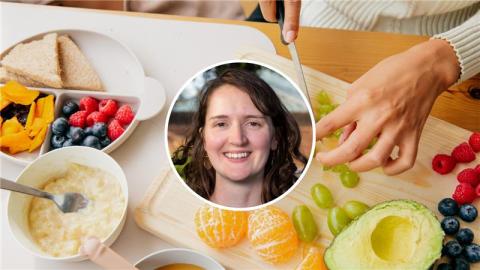


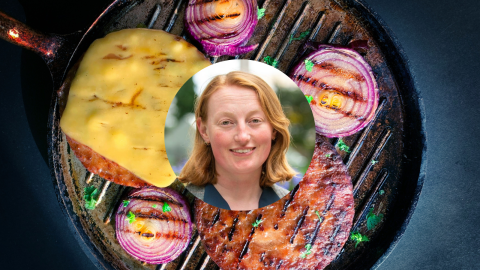
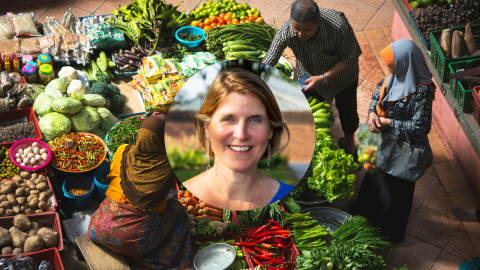

What we've achieved
Since our launch in 2017 Peas Please pledgers have served or sold an additional
162 million
portions of veg
In 2021 Veg Power worked with 1,900 schools to get children excited about eating veg, with the Eat Them to Defeat Them campaign reaching
46 million
people
100+ organisations
have made a pledge for more veg as part of Peas Please
In November 2020 the government announced the
first increase in over a decade
to the value of Healthy Start vouchers, a welfare scheme supporting low income families to buy fruit and veg

Explore the Key Pillars of our work
Our mission is changing food policy and business practice to ensure everyone, across our nations, can afford and access a healthy diet.

Improving children’s diets
Too many children live in households experiencing food poverty in the UK. These families often rely on a cheap, poor-quality food which means that child hunger and obesity often coexist. We work to ensure all children can access a healthy diet.

Increasing uptake of plant-rich diets
Shifting diets to be more plant-rich would bring an array of health, environmental and economic benefits to the UK. We work collaboratively with businesses, policymakers, academia, civil society and citizens to make healthy and sustainable plant-rich diets more readily available, affordable and appealing.

Influencing food policy
To address the health and climate crises, policy needs to support major dietary shifts – 30% more fruit and vegetables, 50% more fibre, 25% less HFSS food and 30% less meat by 2032. We support leaders to transform food systems.
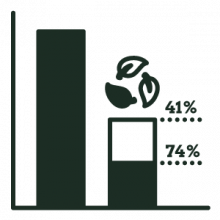
Inspiring change in food businesses and investment
5 out of 11 supermarkets now have targets for healthier food sales. 2 have targets for fruit or vegetable sales and 2 report on sales of animal vs plant proteins. We help make the food industry more transparent so that investors and policy makers can spot the leaders and the laggards.

